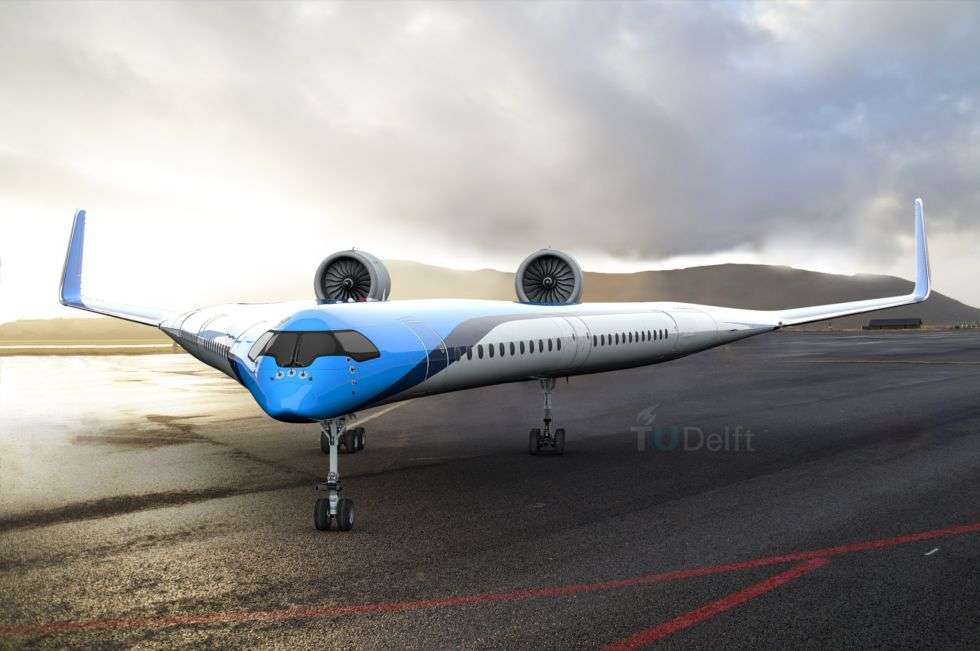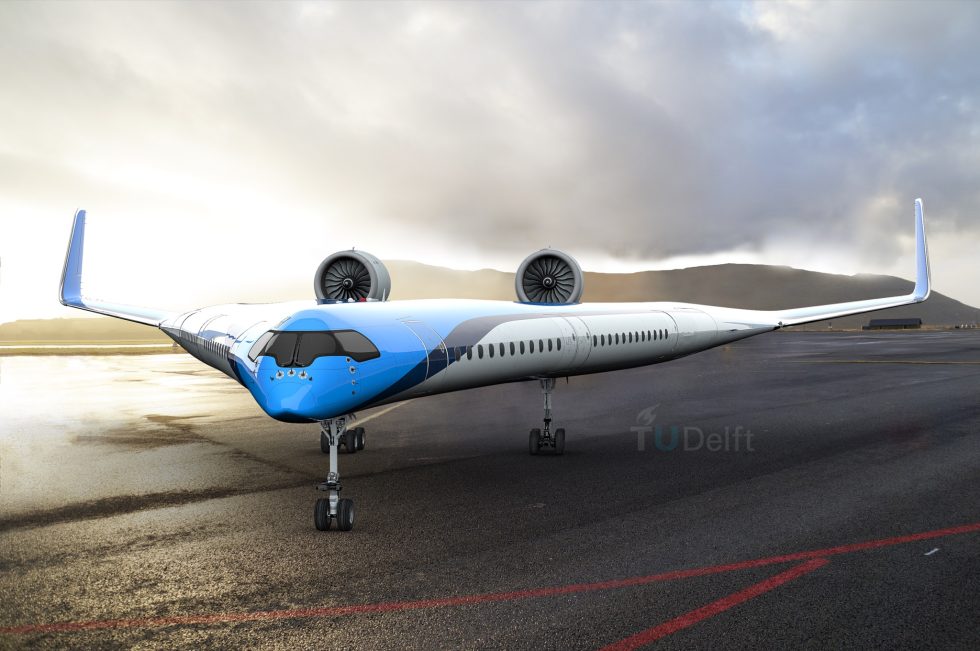
The Flying V would be unlike any other passenger airliner, even in 2040
-

This unusual-looking plane is called the Flying V, and it’s a concept for a more efficient passenger airliner. [credit: Edwin Wallet/TU Delft ]
Dutch airline KLM turned 100 earlier this month and decided to give itself a birthday present: a shiny, sleek, futuristic-looking, sustainable aircraft. Or at least the possibility of one in 2040. “This could be the next thing,” says Dr. Roelf Vos, professor of flight performance and propulsion at Delft University of Technology and the head researcher on the Flying V project. “It at least deserves some investigation.”
The Flying V, touted in press releases as “revolutionary,” is what is known as a blended wing body, or BWB, aircraft, a design with no distinct wing and a body structure like more conventional aircraft. The shape reduces drag, which means the plane needs less fuel to operate. TU Delft claims the Flying V will consume 20% less fuel than a similarly sized traditional aircraft. “These are estimates,” cautions Vos. “We still have 5-10 years of research before we could test a full-scale aircraft.”
The design of the Flying V wasn’t invented by Vos or even TU Delft or KLM; it was the idea of a Technical University of Berlin student, Justus Benad, working on his thesis project at airplane maker Airbus. He tested a scale model in 2014, and Airbus patented the design but didn’t move further on the project. Vos saw the concept in a news article in 2015 and wondered if Benad’s calculations were accurate. “I was skeptical,” he said. He had two students review the concepts, one of whom went to Berlin to meet with Benad, and, together, they concluded the concept had potential.
Read 12 remaining paragraphs | Comments




